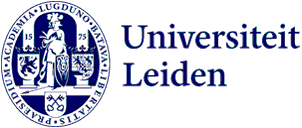Conference
Ethical regimes. Doctors, patients and ethics in colonial and postcolonial medicine
- Date
- Thursday 22 January 2026 - Friday 23 January 2026
- Address
- Boerhaave Museum
Lange Sint Agnietenstraat 10
Leiden
Programme and registration
This conference is open to the public, but registration is mandatory. Please send an email to j.e.schep@hum.leidenuniv.nl if you would like to attend.
Read the full conference programme [PDF].
See the Call for Papers.
Conference
This conference is focused on ethical practices in medical research and treatment in the colonial and postcolonial context and seeks to explore the ethical practices of medical professionals conducting research in diverse colonial and postcolonial settings, and the role of their patients and subjects.
European colonies and countries within a western sphere of influence were critical sites for the development of modern medical science. This means that they were also places where medical experimentation and treatment took place, and colonial medical research left a legacy of profound ethical concerns. Among the best-known cases now widely regarded as unethical are the Guatemala syphilis experiments or the experimental treatment of Africans for sleeping sickness. However, not all colonial medical practices were equally harmful, and some reveal the complicated relationship between high-risk experimentation and efforts to provide the best possible treatments for patients.
In the post-World War II and postcolonial era, ethical practices were increasingly formalized in codes of conduct. Before that time they were more often shaped by informal ideas and tacit practices, yet this does not mean they cannot be studied. In this conference, we aim to discuss the various ways in which these ideas and practices can be approached. How did medical and ethical practices differ (if they did) between the motherland and the colony? How did medical professionals describe and justify the risks they took? We welcome papers, for example, that explore specific scandals, analyze newspaper coverage, investigate the language of virtue and vice in medical discourse, and examine resistance and refusals of subjects.
One focus in this conference is on the concept of ‘ethical regimes’, introduced by Radin and Kowel (2015). Their ethical regime is not a normative concept that separates ethical from unethical regimes but describes the entirety of structures and values that govern ethical decisions. How did colonial politics, social hierarchies, and professional cultures influence ethical decision-making in medical research? What roles did religious beliefs, local customs, and imperial ideologies play? We are particularly interested in how ethical regimes varied across different sites, colonies, institutes, disciplines, or individuals.
A second focus of this conference is on patients, subjects and intermediaries. What ‘troubling encounters’ took place between doctors and patients? How can we recover patient perspectives? What role did intermediaries play? What motivated people to participate in experiments? How was consent obtained or organized? Did subjects voice dissent in religious, cultural or psychological terms? What options were available for them to resist?
Research Project
This conference is part of the ERC-funded project COMET at the Leiden University Institute for History.
We are planning to create a special issue or edited volume about this topic. We will organize further (online) meetings to work on full papers after the conference.
